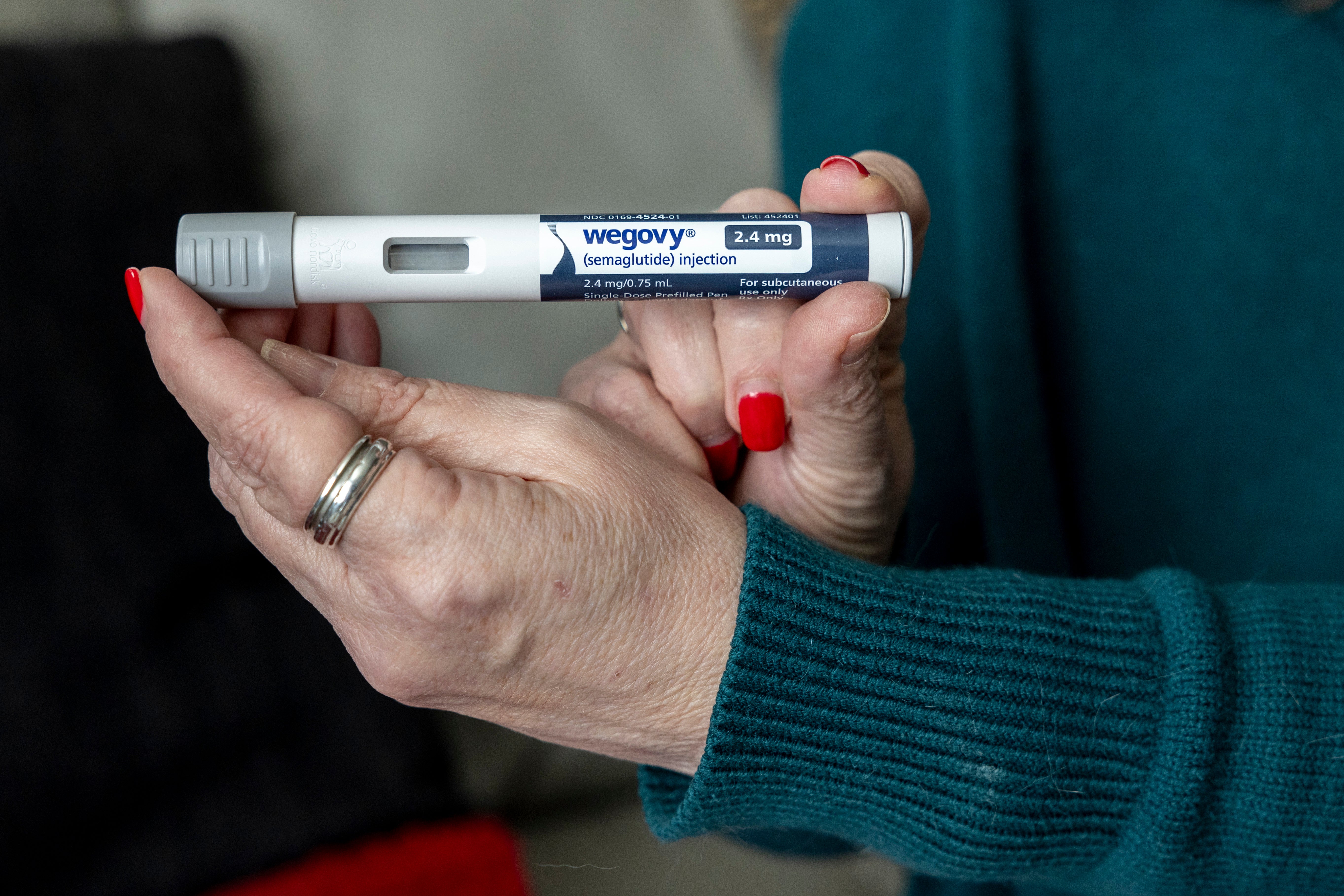Alzheimer’s and sleep apnea: The other health conditions weight-loss drugs could cure
Millions of people already take Novo’s GLP-1 drugs

Eli Lilly’s blockbuster diabetes drug Mounjaro and weight-loss therapy Zepbound, as well as Novo Nordisk’s rival medicines Ozempic and Wegovy are being studied to see whether they can improve health in other ways.
The drugs chemically known as semaglutide, belong to a class of drugs called GLP-1 agonists. Originally developed for type 2 diabetes, they also reduce food cravings and cause the stomach to empty more slowly.
Patients who are obese or overweight are at “a higher risk of cardiovascular death, heart attack and stroke. Providing a treatment option that is proven to lower this cardiovascular risk is a major advance for public health,” said John Sharretts, FDA’s director of the Division of Diabetes, Lipid Disorders, and Obesity.
Millions of people already take Novo’s GLP-1 drugs, but the FDA’s stamp of approval for the heart benefits is likely to open their use to more patients.
Dr. Chad Weldy, a cardiologist at Stanford University, said he typically deferred to the primary care team to initiate and monitor therapy with drugs like Wegovy in the past, but said that likely is going to need to change.
“Cardiology groups will need to fully incorporate these therapies into clinic and build a clinical workflow to manage dose escalation, side effects, and insurance approval,” he said.
Below are other conditions obesity treatments are being tested against:
A study by the University of Copenhagen’s Psychiatric Centre Rigshospitalet is investigating whether semaglutide, sold as Novo’s Wegovy and Ozempic, can help reduce alcohol intake in 108 patients diagnosed with alcohol use disorder and obesity.
Alzheimer’s disease
Novo Nordisk has begun a trial testing semaglutide in patients with early Alzheimer’s disease. The study, which will enroll 1,840 patients, could reach primary completion as early as 2025.
Cardiovascular disease
Eli Lilly is testing tirzepatide, sold as Mounjaro and Zepbound, for patients with heart failure and obesity. Lilly plans to enroll about 700 people in the study, which is expected to be completed by July 2024.
Researchers at the Chinese University of Hong Kong are testing Novo’s semaglutide along with mechanical removal of clots in patients with strokes caused by the blockage of large blood vessels to the brain. The approach will be compared with standard therapy. The mid-stage study aims to recruit about 140 patients.
Chronic kidney disease
Novo’s Ozempic delayed the progression of chronic kidney disease in diabetes patients, cutting the risk of death from that and major cardiac events by 24%. That was, however, below investor expectations.
Lilly’s tirzepatide is being evaluated in a mid-stage study of chronic kidney disease in patients with obesity. Lilly plans to enroll up to 140 participants.
Liver disease
Novo is testing semaglutide in a late-stage trial of patients with a common type of fatty liver disease called non-alcoholic steatohepatitis (NASH). The study is expected to enroll about 1,200 patients.
Lilly’s tirzepatide helped up to 74% of patients achieve absence of the disease with no worsening of liver scarring at 52 weeks, compared with 13% of patients on placebo, in a mid-stage trial for the fatty liver disease formerly known as NASH and now called metabolic dysfunction-associated steatohepatitis, or MASH.
Neurological disorders
Researchers at the Danish Headache Center are testing semaglutide along with a very low calorie diet as a treatment for new-onset idiopathic intracranial hypertension, a condition associated with obesity in which blood pressure inside the head rises. The study aims to recruit about 50 patients and wrap up as early as 2025.
Sleep apnea
Lilly’s tirzepatide is in late-stage testing for patients with obstructive sleep apnea and obesity, including people who use respiratory devices that help keep their airways open while they sleep, as well as people who don’t use such devices. The study is expected to enroll about 469 participants.
Join our commenting forum
Join thought-provoking conversations, follow other Independent readers and see their replies
Comments
Bookmark popover
Removed from bookmarks